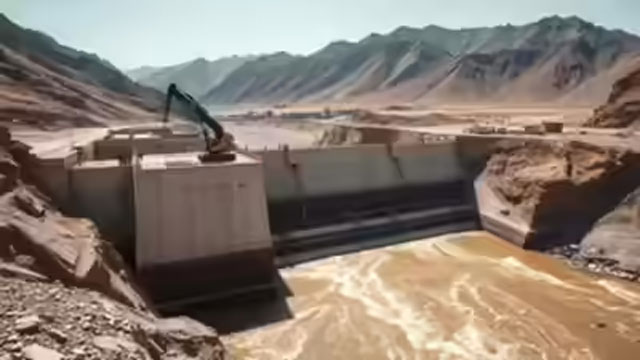Daijiworld Media Network - Tehran
Tehran, Nov 10: Iran’s water crisis has reached alarming levels, with water storage at the dams supplying Mashhad — the country’s second-largest city — plunging below three percent, local media reported on Sunday.
Hossein Esmaeilian, chief executive of Mashhad’s water company, told ISNA news agency that the situation has become dire, warning that “managing water use is no longer merely a recommendation — it has become a necessity.”

Mashhad, home to nearly four million residents and known as Iran’s holiest city, depends on four major dams for its water supply. Esmaeilian revealed that consumption in the city has reached around 8,000 litres per second, with only about 1,000 to 1,500 litres per second currently coming from the dams.
The crisis mirrors growing concerns in Tehran, where authorities have warned of potential rolling water cuts amid what officials describe as the worst drought in decades. Of the five major dams supplying the capital, one has completely dried up and another is operating at less than eight percent capacity.
“If people can reduce consumption by 20 per cent, it seems possible to manage the situation without rationing or cutting off water,” Esmaeilian said, cautioning that households with high consumption may face supply cuts first.
According to the Iranian Water Resources Management Company, 19 major dams — nearly 10 percent of the nation’s reservoirs — have already run dry. President Masoud Pezeshkian recently warned that if rainfall does not arrive before winter, even Tehran could face evacuation, though he did not elaborate further.
The country has been reeling under months of drought and extreme heat. Over the summer, authorities announced public holidays in Tehran to conserve water and energy as the capital endured frequent power outages during a severe heatwave.
Local newspapers have sharply criticised the government’s handling of the crisis. The reformist daily Etemad blamed “the appointment of unqualified managers in key institutions” for worsening the situation, while Shargh lamented that “climate is being sacrificed for the sake of politics.”